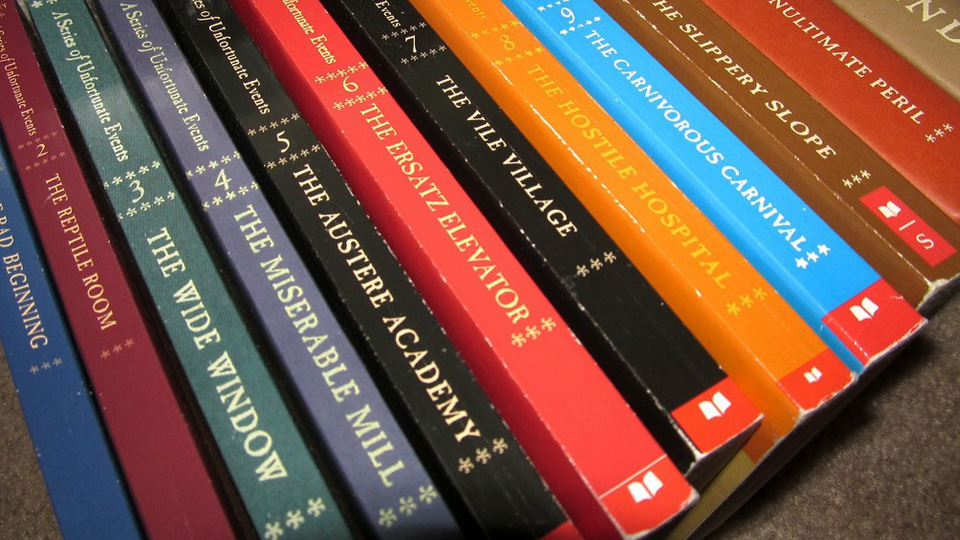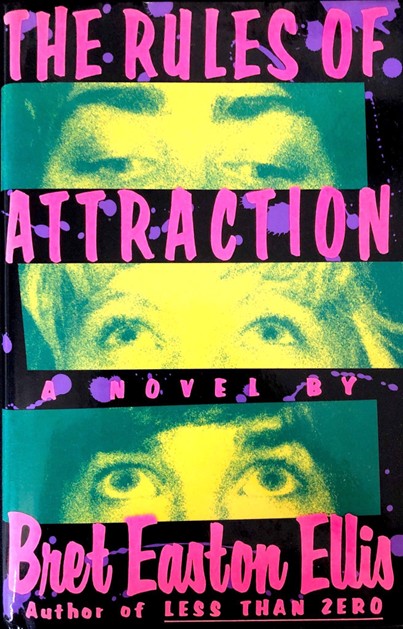A Series of Unfortunate Events is a chapter book series written by Daniel Handler that follows the Baudelaire orphans and the treacherous ordeals that they experience.
The first book, The Bad Beginning, was published in 1999, and was an instant hit. The series continued until 2006 with The End. The books waver between 162 and 368 pages. These books are considered to be gothic-esque, dark comedy, fictional children’s novels. I have also read the prequel series, All the Wrong Questions, which explores narrator Lemony Snicket’s first assignment in a failing town called Stain’d by the Sea. AtWQ is more like a film noir. Lemony Snicket, within ASOUE, is an older gentleman who’s lost a lot, and it shows in his monologues at times. He’s also intelligent and crafty, but can be cowardly at times. The title intrigues the reader, as life can be described as a series of unfortunate events, and it fits well with the text of the book. After all, the title warns the reader of misfortune, and Lemony consistently tries to prevent the consumer to cease reading of the unfortunate lives of these poor children. The illustrator is Brett L. Helquist, and his art is distinct, gothic, and absolutely gorgeous.
Our protagonists are the Baudelaire orphans, Violet, Klaus, and Sunny. They’re pretty stereotypical kid protagonists, being clever, kind, morally good, and polite. Each one has their own special talent. Violet is a fourteen-year-old inventor whose inventions save the trio time and time again. Klaus, twelve, is a massive bookworm with an impressive memory. Gladly, his research does come in handy a ton. Sunny’s the baby, and originally starts the series with a love of biting things, which evolves into a culinary interest. The overarching villain of the entire series is Count Olaf, an awful actor who plans to gain the Baudelaire fortune. He’s actually my favorite character. He’s terrible, violent, slimy, and unclean, yet he brings up good points about the world and society, especially in the twelfth book. The kids encounter several other characters, but I’ll keep them a secret just in case.
This satirical series has a lot of heart, and it treats its younger audience quite well, as Handler understands his audience’s intelligence. Not to mention, the series is dark enough for older audiences as well, and the literary references hit harder when you’ve read them. Hell, a ton of the lingering overarching mysteries have clues in the side works, and it’s up to the fans to figure it out. While some may complain about the writing style, I appreciate the humor it generates. The writing style is somewhat simplistic and repetition is a common sight, but the humor and the strangely specific definitions give it that spice. Is it somewhat annoying for there to be two full pages of the word “ever”? A bit, but it’s hilarious. There’s even a point where Snicket can’t describe a deadly fall into a dark place, so the page is just completely black. The books are written from Snicket’s point of view as he investigates their journey, making little quips foreshadowing or even spoiling certain events, such as a guardian’s death.
The series is built on subverting tropes and applying certain sayings quite literally for comedic and dramatic effect. In The Penultimate Peril, the hotel is called the Hotel Denouement. A denouement is the part of the story where the mysteries are solved and hanging threads are revealed, but Handler doesn’t answer any of our questions in the almost final chapter of the Baudelaire’s story. It’s brilliant. An example of a character taking a saying literally is a character named Babs who appears (or is rather heard) in The Hostile Hospital. She believes that if children are to be seen and not heard, then adults should be heard and not seen, so she hides in a booth and no one is able to see her face.
This series has more than wit, the subversion of tropes, and unfortunate events. It also has powerful themes of hope in times of great despair, the importance of family, and adults failing children even if they have the power to help due to their own issues. If you haven’t read this series since your childhood, I implore you to. If anything here has piqued your interest, well, check it out. You might be pleasantly surprised.




